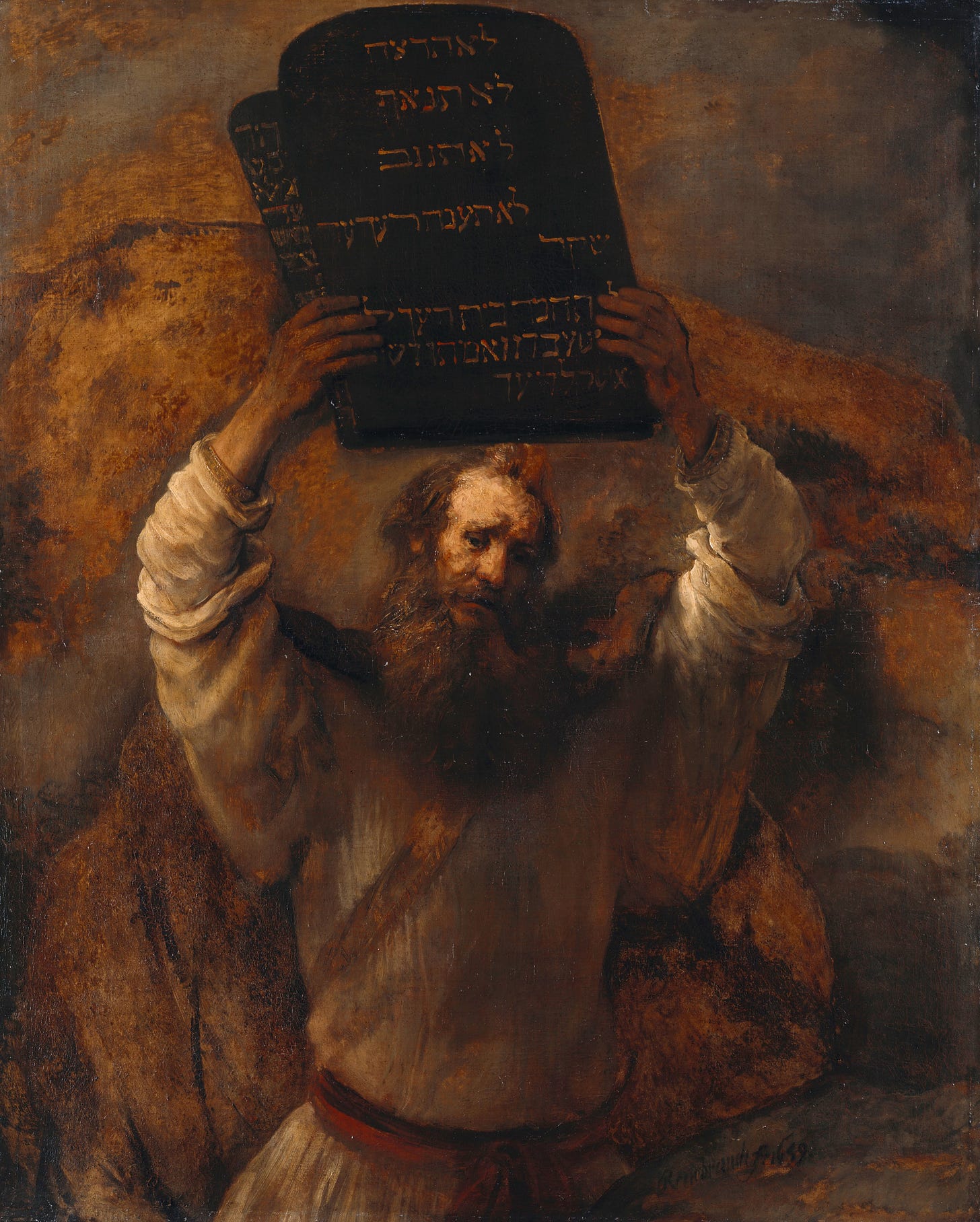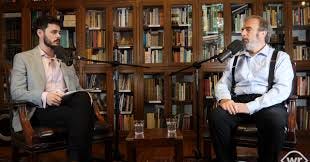God and the New Right
The co-option of religion in the battle against progress
Enter O’Connor, exit Hitchens
For me, when the inhuman scheming algorithm of an online platform like Youtube offers a neverending Lucky Dip of stimulations, it is not so much like falling down a rabbit hole, as pulling at a thread. And so it was with Alex O’Connor and Peter Hitchens.
I’d been looking at soccer sites (truly) when the ghost in the machine sent me a link promising a video of Hitchens walking out of a podcast sometime earlier in the year. So I watched as this very young man, Alex O’Connor, interviewed Hitchens jr in a room that looked like a library equipped with two chairs and two very decent microphones.
The host began by announcing that the subject matter of their discussion was to be drugs – about which Hitchens had written a recent book – and religion. Anyway, they began with drugs and it became apparent that like Longfellow’s God, O’Connor’s mill grinds slowly, but grinds exceeding small. As he questioned Hitchens almost minutely on his evidence on the civilisational harms of cannabis use, Hitchens – who is far more used to the drive-by bluster of the column or the talk-show – became increasingly irate.
And rude. Why was O’Connor so interested in the “boring” subject of drugs on which Hitchens had written a book that O’Connor had clearly not read and which, if he had read it, he had obviously not understood? I had never come across O’Connor before but it was obvious that this stratospherically bright young man had indeed read the book and had indeed fully understood it, probably better than its author. That was pretty much the problem.
Then Hitchens suddenly announced that he was terminating the interview and got up and exited from view. But not from sound. For 17 minutes he harangued O’Connor from off-camera for having invited him on “false pretences” and for being part of the pro-drugs lobby. O’Connor, said the voice of Hitchens, would be behaving immorally if he let the podcast go out. I was reminded of the story of Britain’s “worst poet” William McGonagall, who in 1858 played Macbeth in the main theatre in Dundee and, after having been run through multiple times by Macduff in the final act, refused to die. Hitchens finally exited having told O’Connor that he didn’t like him personally. I found it almost painfully funny not least because I could just about imagine it happening to some exaggerated version of myself.
The God debate sub-culture
That was the tip of the thread, and I had pulled. What followed was an extraordinary catalogue of O’Connor podcasts in which he discussed or debated philosophical and ethical questions on both sides of the Atlantic. I say extraordinary because there were several years’ worth of these episodes and O’Connor is just 25. The only indication that he was quite so youthful was the number different of facial hair experiments that he had carried out over time – medium beard, stubble, clean shaven and (for a disastrous period) moustache. Only men too young to live with a partner are allowed such mistakes.
But O’Connor’s principal oeuvre is the discussion about religion, which has moved on from the great New Atheist public debates of the noughties, to live on in podcasts, some of which attract hundreds of thousands of views. Sometimes O’Connor, whose knowledge of Christianity and its origins is compendious, debates (very politely) against Christian and Muslim faith-holders, but more often discusses aspects of the religion with specialist historians. My recent bout of norovirus gave me time to watch all of part of more than a dozen of these podcasts. The Lord moves in a mysterious way.
By now the algorithm was as continent as I was and dozens of religious themed podcasts poured out of it. Some were interesting, some frustrating, and in not a single one of the dozens of debates about religion that I was offered by YouTube was there a female participant. Battling in public about the truth of Christianity or Islam isn’t something that women get into. It is, however, clearly lucrative; there is an appetite for it.
It's not one I have shared. It is evident to me that religion is manmade, that therefore all the scriptures were invented and written by human beings and that religions tend to fulfil three basic functions: a creation explanation, an explanation of why things are as they are, and a form of social control and behaviour regulation. They are mostly mutually exclusive, originally geographically based and they have risen and fallen.
So how the Bible got to be the Bible, how Christianity, Islam, Judaism and the non-Abrahamic religions originated and evolved – that’s all fascinating. O’Connor introduced me to scholars like the American professor Bart D. Ehrman, a former fundamentalist whose deep study of the history of the Bible helped turn him into an atheist, and professor Elaine Pagels, the great expert on the Gnostic Gospels (sorry, no time, look ‘em up). I love it.
But debates about whether religion is true or is a force for good or evil? What’s the point? Let’s imagine that I debate against Rowan Williams and am so convincing that I leave him suddenly shorn of the comfort of his faith. What would I have achieved? The new vicar of the nearby church is an energetic and slightly theatrical young man who wants to establish his Godspot as a sort of community centre. Would local life be improved by one iota if his spire collapsed tomorrow?
There are fundamentalists and moderates in religion as there are in politics. I am against the former and inclined towards the latter, but the dividing line is not belief in the Deity. Or, at least, it hasn’t been in recent times.
The fifth great awakening?
Over the last couple of years in parts of Europe and to a growing extent over here, we’ve seen an uptick in the use of religion to bolster a particular and extreme political trend. I’ve alluded to it in several posts since I began this Substack 21 months ago, and found it epitomised in the anti-abortion, natalist, anti-migrant, Christian nationalism of the National Conservatives and the rhetoric of the supporters of Hungary’s Viktor Orban.
In America it’s been going for much longer and is still running strong. In Texas the Republicans who control the state are bringing back moves to mandate the placement of the Ten Commandments in every public-school classroom in the state.
A great example for the kids? Only if they fail to notice that the very same people have just helped to elect as president of their country a man who has almost certainly broken all but one of those commandments - religiosity always seeming to go hand-up-skirt with rampant hypocrisy. And I also wonder what Texan schoolchildren will make of the admonition not to covet other people’s asses.
Just before the end of the year the Atlantic Ocean was book-ended by two almost identical pieces written for influential conservative publications. Using much the same evidence they both claimed to see signs of an intellectual and popular Western movement back to God - by which they meant to organised Christianity.
The American end of this contention was published on the website of The Free Press, a hugely successful superblog founded by refugees from the censoring culture warriors of the American left. A left which, in the aftermath of the George Floyd murder, had rampaged through institutions like the New York Times and various universities and cultural bodies, aided by the cowardice of deans, proprietors, directors – and had thereby done immense service to the forces of the New Right. Which, ineluctably, became dominant on sites like The Free Press.






